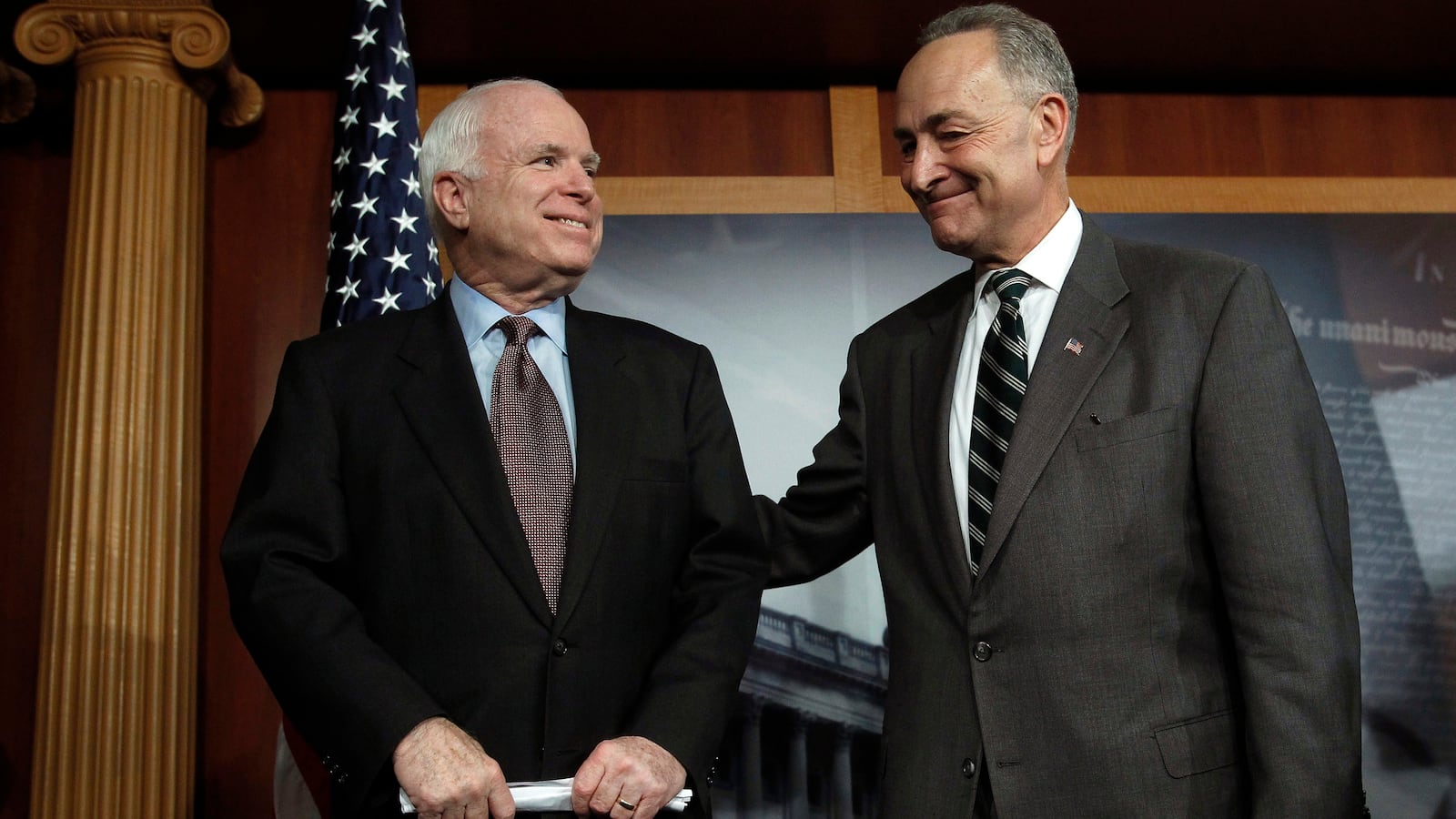This time it will be different.

After repeated failures at the federal level, comprehensive immigration reform finally looks like a real possibility this year. And that’s because a broad bipartisan coalition has been built in the Senate, motivated by both self-interest and national interest. Today in Nevada, President Obama will add his vision to their legislative foundation, officially making immigration reform the core of his second-term agenda.
Obama’s unexpected ally in this effort is the evangelical community—part of an emerging conservative coalition in favor of immigration reform that supporters describe as “the Bible, the badge, and business.”
Back in 2007, when President Bush tried belatedly to push through a bipartisan immigration bill, the prevailing winds were against progress. The presidential race to succeed him was already underway and the right-wing talk-radio crowd attacked the McCain-Kennedy bill as “amnesty”—providing a pre–Tea Party bandwagon that candidates like Mitt Romney and Tom Tancredo climbed on to beat back McCain’s center-right campaign. Often forgotten in this narrative is the fact that congressional Democrats weren’t particularly in the mood to hand Bush a victory either.
But six years later, the right-wing talk-radio crowd is receding in relevance as their listeners age out of existence. Many conservatives who opposed the last comprehensive are realizing that failure to win over Hispanic votes represents an existential threat to the Republican Party.
But perhaps most of all, the attitudes of the Republican rank and file have changed.
“In 2013 you have people who hold the Bible, wear a badge, or own a business who all want broad immigration reform,” says Ali Noorani of the National Immigration Forum, a D.C.-based policy institution. “From a faith perspective, their faith commands them to treat people humanely. From a law enforcement perspective, they realize that in order to keep the public safe they need to be enforcing criminal law and not federal immigration law. And from a business perspective, immigrants are the workforce of the present and the future. Those three constituencies are realizing that the extreme right wing is not the voice of reason.”
Enlightened self-interest is always a powerful motivator, appealing to both the head and the heart, and Noorani sees demographic facts driving the new coalition. “In the last six years, frankly, evangelical America has realized that they need to become more Hispanic, just like the rest of America,” he says. “Diversity is on the rise, and with that comes a change in perspective.”

One umbrella organization for evangelicals pushing for immigration reform is the Evangelical Immigration Table, bringing together more than a half-dozen organizations and scores of senior signatories ranging from the Southern Baptists’ Richard Land to Jim Wallis. In a postelection letter to President Obama and Congress, members of the organization wrote:
“Our national immigration laws have created a moral, economic and political crisis in America. Initiatives to remedy this crisis have led to polarization and name calling in which opponents have misrepresented each other’s positions as open borders and amnesty versus deportations of millions….As evangelical Christian leaders, we call for a bipartisan solution on immigration that: Respects the God-given dignity of every person; Protects the unity of the immediate family; Respects the rule of law; Guarantees secure national borders; Ensures fairness to taxpayers; Establishes a path toward legal status and/or citizenship for those who qualify and who wish to become permanent residents.”

To that, all but the most rigid ideologues in Congress should be able to say “Amen.”
The culture wars are not yet over, but the 2012 election reinforced the idea that it is always best to make change your ally rather than your enemy. Looking ahead at the legislative process that is likely to dominate the rest of the year, the hopeful prospects for passage are a reminder that bipartisan support is necessary for any progress in a divided government and the creation of new coalitions—like the one between the Bible, badge, business, and President Obama—are necessary to fuel successful efforts to move the country not left or right, but forward.






